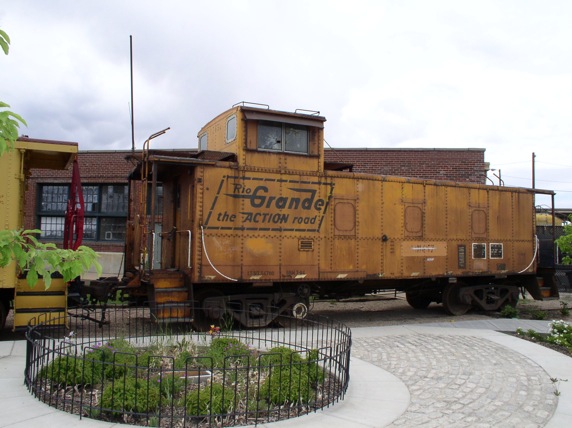
(An unofficial mirrored version of information removed from the official Golden Spike Chapter R&LHS web site; pages removed after August 2013; recovered via Archive.org's Wayback Machine.)
This is an offset cupola steel caboose built in October 1947. It is one of the very fIrst cabooses that were outfitted with wireless radio. It was built at the D&RGW's Burnham ( Denver) shops in 1947 as part of series 01450-01459 (radio equipped, with a Pennsylvania RR-style rooftop induction antennae), originally with four-pane wood windows in all-black with white lettering and two yellow stripes (to designate radio equipped). Repainted in 1975 in the all-orange/black lettering "Action Road" scheme. Four-pane windows were rebuilt to double pane, then blanked over in September 1985.

This is a CA-4 steel caboose built around 1944. It was considered the Rolls Royce of cabooses with an exceptional ride for the crew members.

Used in the Bingham Canyon Mine on the ore trains. Two of these were obtained by the museum. One was modified as an exhibit inside the museum building as part of the Utah State Railroad Museum.

Built in August 1961. One of the last cabooses to operate with a boxcar type draft-gear. It was used in the Tucson, Arizona area until donated to the museum.

This is a bay window style steel caboose built in March 1966.
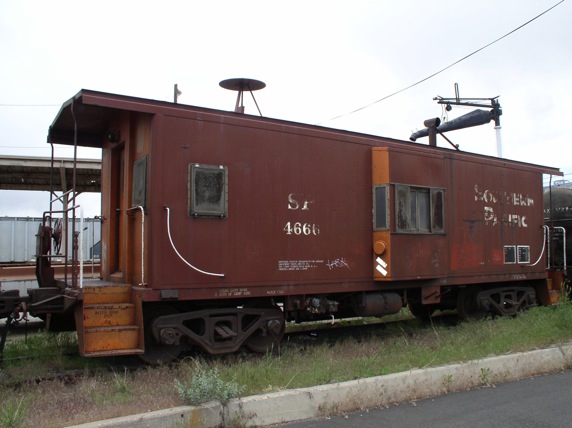
An extended vision caboose built in June 1966.
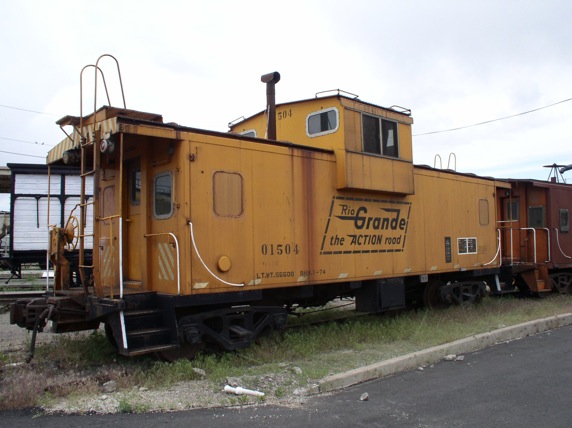
Union Pacific 2624 renumbered to 25766 was built in January 1921 by the American Car & Foundry for Oregon and Northwestern (a UP subsidiary) and used by the line until it closed. It was retired November 1971 and restored in April 1972 by the U.P .It was donated to the museum in 1979, and delivered in 1981.
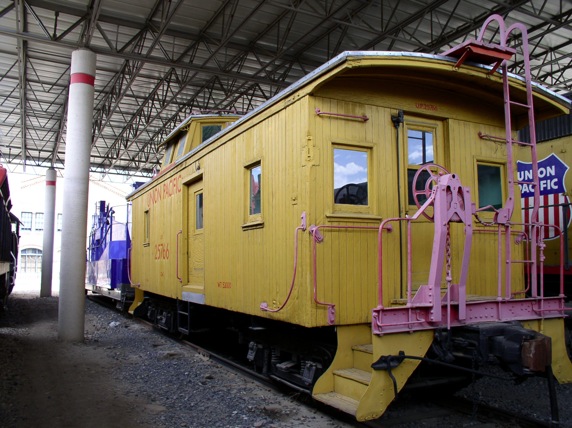
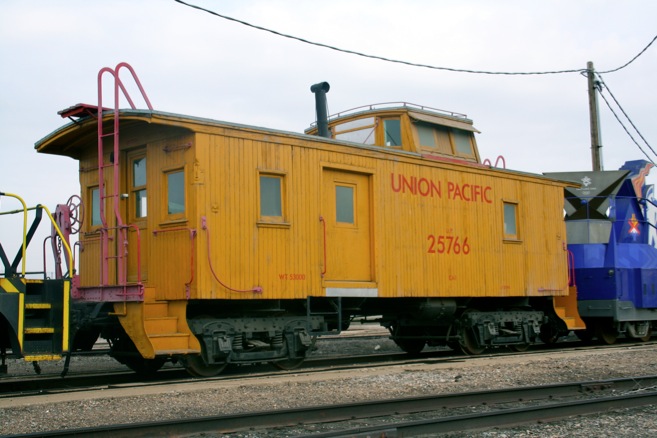
Originally this was Union Pacific Class CA-ll extended platform caboose #25880. It was built July 1979 by the International Car Company and retired by the U.P. on 3 January1989. It was donated to the museum, which leased it to the Utah Central.

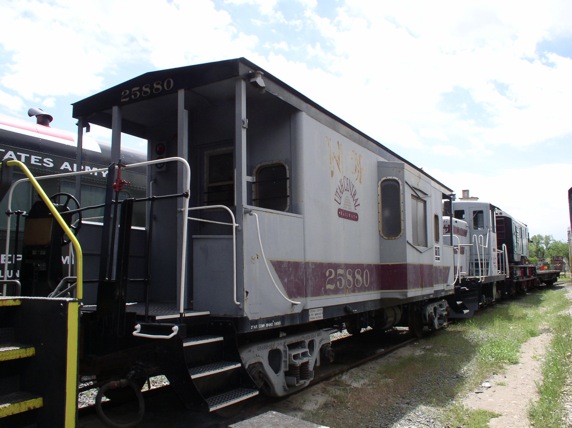
###